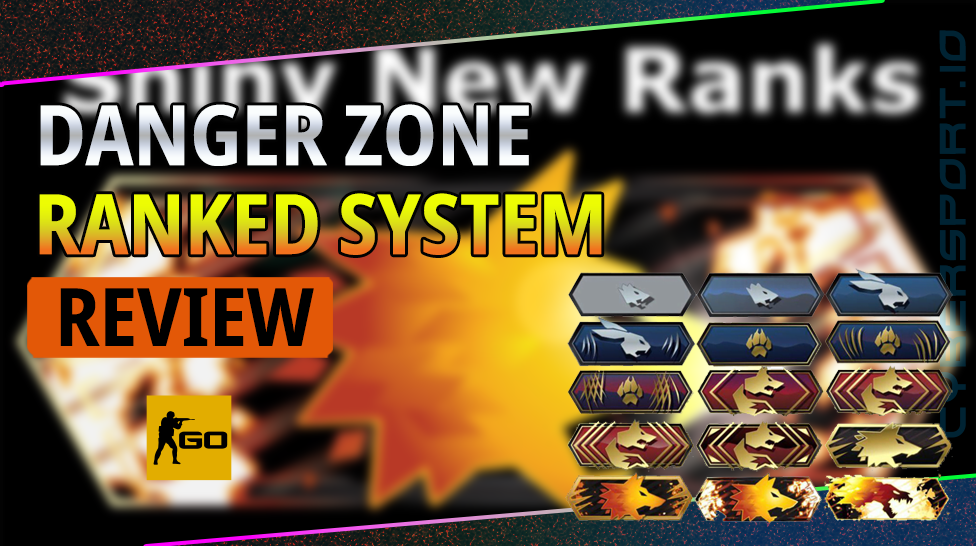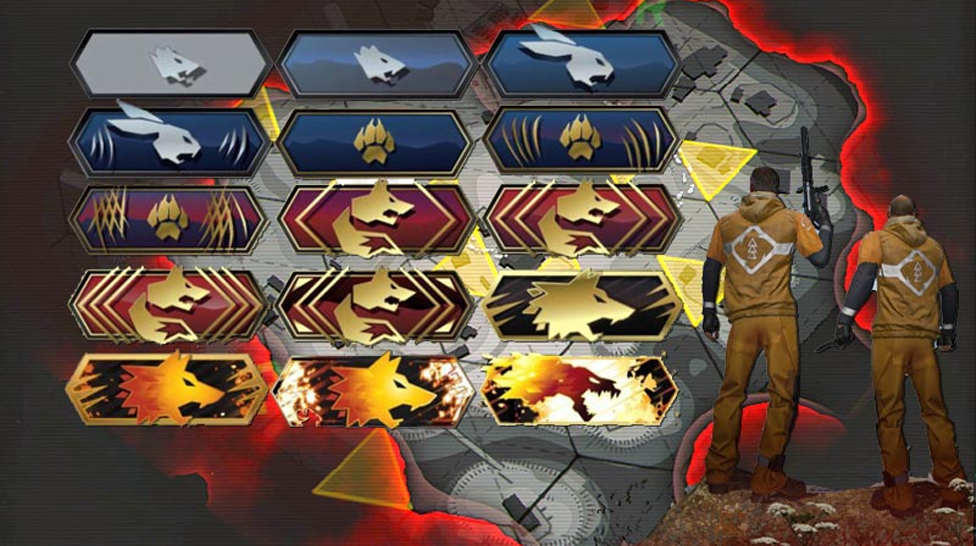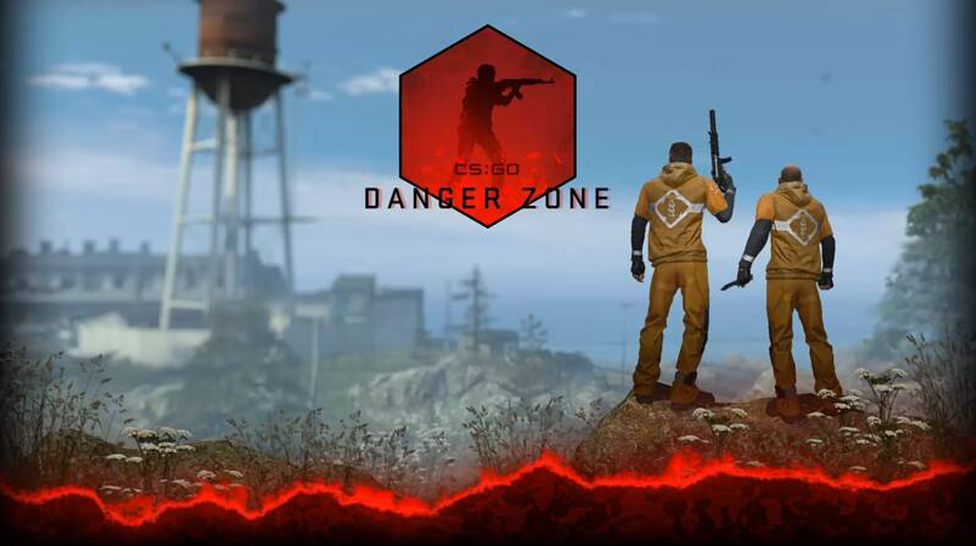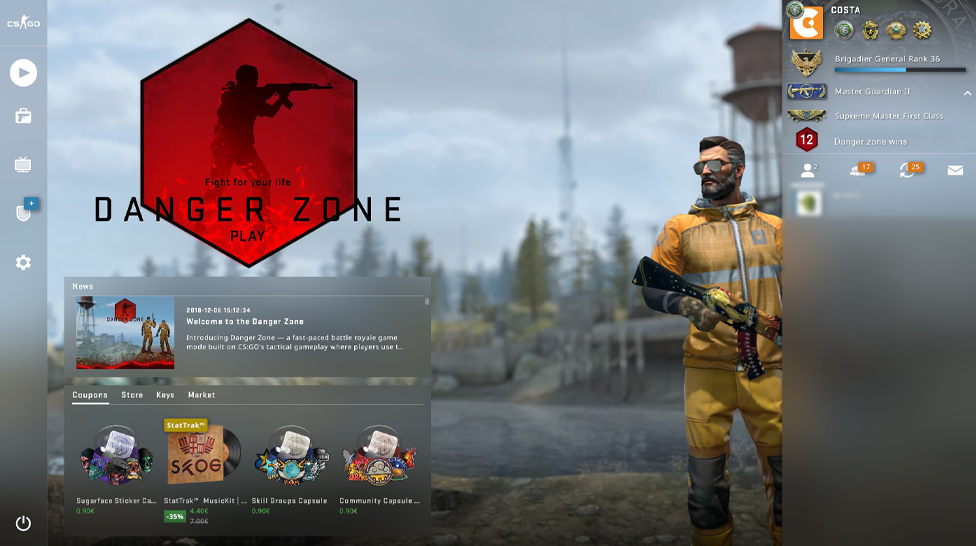These rankings differ from the more straightforward generic CSGO rankings in that they often operate differently. The majority of gamers have firsthand accounts of the standings seeming to change randomly. While middling games produce large shifts, great victories appear to have little effect. So, how do Danger Zone rankings operate and do they have any real significance?
DANGER ZONE RANKS EXPLAINED – HOW DANGER ZONE RANKS WORK
In the beginning, the CSGO Danger Zone game mode was merely for fun. Initially, rankings were absent. Danger Zone now has a rating system, even if it has mostly remained independent. The CSGO Danger Zone rankings, however, are distinct from the main game. Even then, seven months after the initial publication, the rankings weren't even announced. The game's attainable rankings are as follows: (*Also seen in the picture up above):
- Rat 1
- Rat 2
- Hare 1
- Hare 2
- Scout 1
- Scout 2
- Scout Elite
- Fox 1
- Fox 2
- Fox 3
- Fox Elite
- Timer Wolf
- Ember Wolf
- Wildlife Fire Wolf
- Howling Alpha
All of the rankings that are now in danger zone are listed above. Each indicates how well you play the game. However, it doesn't really have an impact on your title matching!
DO RANKS MATTER?
Danger Zone rankings are a fantastic way to impress your friends with your gaming prowess or simply to earn some bragging rights. They may not be very significant, however, in terms of matching. The specifics of how rankings and matching operate are kept under wraps by Valve.
They won't explain how the matching is affected by their algorithms. According to anecdotal evidence of the caliber of participants in each match, it seems that matching quickly is more crucial in this case than rank. Beyond the bragging rights, it is doubtful that Danger Zone rankings truly affect your gaming experience. Players may pair up with players of any other rank without disrupting matchmaking. Therefore, how Danger Zones function doesn't significantly affect gameplay.
It is nevertheless beneficial to feel like you are making progress and achieving goals while playing, even if the Danger Zone rankings don't appear to have much of an impact on your matching. Which makes it a little annoying when it's unclear why the rankings are changing.
WHAT EFFECTS YOUR DANGER ZONE RANK?
The method used by CSGO to determine your skill level seems like something you should be aware of when you're looking at your Danger Zone rating. Unfortunately, neither how your Danger Zone status is established nor what causes it to increase or decrease has an official explanation. The rating mechanism has not yet been fully explained by Valve. This gives them the option to alter the criteria anytime they want while also helping to prevent anyone from abusing the system.
This method of creating rating systems in video games is not common. In reality, this approach proved to be one of the most annoying ways to do business pretty much anywhere it appears. Given how long that has already been the case, it is unlikely to alter. Danger Zones ratings are likely never to be fully explained.
Players who are unsure of precisely what determines where they stand may find this frustrating. However, there are a few elements that we can very definitely pinpoint as being responsible for rank changes.
WHAT CAN YOU DO WITH YOUR DANGER ZONE RANK?
How can you attempt to improve the Danger Zone rankings if there is no clear explanation of how they function? Anecdotal evidence indicating unhappiness with Danger Zone rankings' lack of reality-reflectiveness is abundant. On the other hand, performing well ought to ultimately affect your rating. However, there is always a chance that a poor game will have a greater effect. It may seem sometimes that the ranking system is more concerned with your poor performances than your stellar ones. It's difficult to establish if this is the case or not; it might just be selection bias, in which rank fluctuations are observed as uncommon.
Avoiding paying too much attention to your Danger Zone rating could be the best course of action. Although it is evident that this is easier said than done, the rank doesn't really have a significant impact on gameplay. It doesn't really have an impact on how your game plays since it doesn't play a significant role in matching.
In general, each rank has a similar level of experience. Just for bragging purposes, the title exists. So, if you place highly, you may certainly talk about your success. However, if it's low, you can probably simply disregard the grade and blame Valve's bizarre ranking system for your issues.
CS2 Gambling
CS2 Skin Trading
Rust Gambling
Promo Codes
Online Casinos
Crypto Casinos
CyberSport Feed










![Bitstarz: US Players Acceptance at Bitstarz Casino in [year] Bitstarz: US Players Acceptance at Bitstarz Casino in [year]](/imgs/news_8182/20250402/cache/1743606835_1a1236a2775ca0ab1ab0___308_174.jpg)

![Best Cases to Open in CS2 in [year] Best Cases to Open in CS2 in [year]](/imgs/news_8150/20250304/cache/1741088441_3b891fce289b067982c6___308_174.jpg)